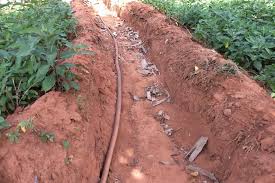Policymakers, Experts Set to Convene in Abuja to Tackle Climate Change, Land Use and Sustainable Agriculture
Abuja, Nigeria – The African Centre for Climate Actions and Rural Development Initiative (ACCARD), in collaboration with the African Climate Foundation (ACF), is set to host a High-Level Stakeholder and Policy Engagement on Climate Change, Sustainable Land Use, and Agriculture (SLUA) from July 8 to 10, 2025, in Abuja.
The strategic event comes at a critical time for Nigeria, as rapid population growth, land degradation, and increased use of harmful agrochemicals continue to strain the nation’s food systems and ecosystems.
Described as more than a conventional policy meeting, the engagement aims to serve as a platform for smart, inclusive, and actionable solutions through collaborative policy reform, innovation, and high-level dialogue.
“This is more than a meeting; it is a strategic step toward climate resilience, food security, and a sustainable future for all Nigerians,” said Freeman Elohor Oluowo, Executive Director of ACCARD.
The engagement follows a scoping study conducted by the African Climate Foundation in April 2025, which mapped out Nigeria’s agroecological practices, highlighting both obstacles and opportunities for scaling nature-based solutions.
“The transition to sustainable land use and agriculture is not just an environmental necessity — it is an economic and social imperative for Nigeria,” stated Japeth Muli, a representative of the African Climate Foundation.
“Through this engagement, we aim to support the Nigerian government and partners in creating enabling policies, unlocking financing, and strengthening local capacity.”
Top officials from the Federal Ministry of Budget and Economic Planning, Senate Committee on Climate Change, Office of the Secretary to the Government of the Federation, Ministry of Agriculture and Food Security, and the Presidential National Agricultural Land Development Authority (NALDA) will attend the event.
Discussions will focus on four strategic priorities:
Raising awareness of the risks associated with harmful agrochemical use
Strengthening institutional coordination and technical capacity
Unlocking financing pathways for smallholder farmers and sustainable food systems
Building grassroots coalitions for ecosystem restoration and policy advocacy
The three-day event is expected to bring together a diverse mix of participants, including senior government officials, development partners, academic researchers, civil society leaders, financial institutions, and climate change experts.
Collectively, they will address the pressing intersections of climate change, food insecurity, land degradation, and unsustainable agricultural practices.
This engagement seeks to catalyze Nigeria’s agroecological transition and deliver a robust national roadmap for a more resilient, equitable, and sustainable future.






